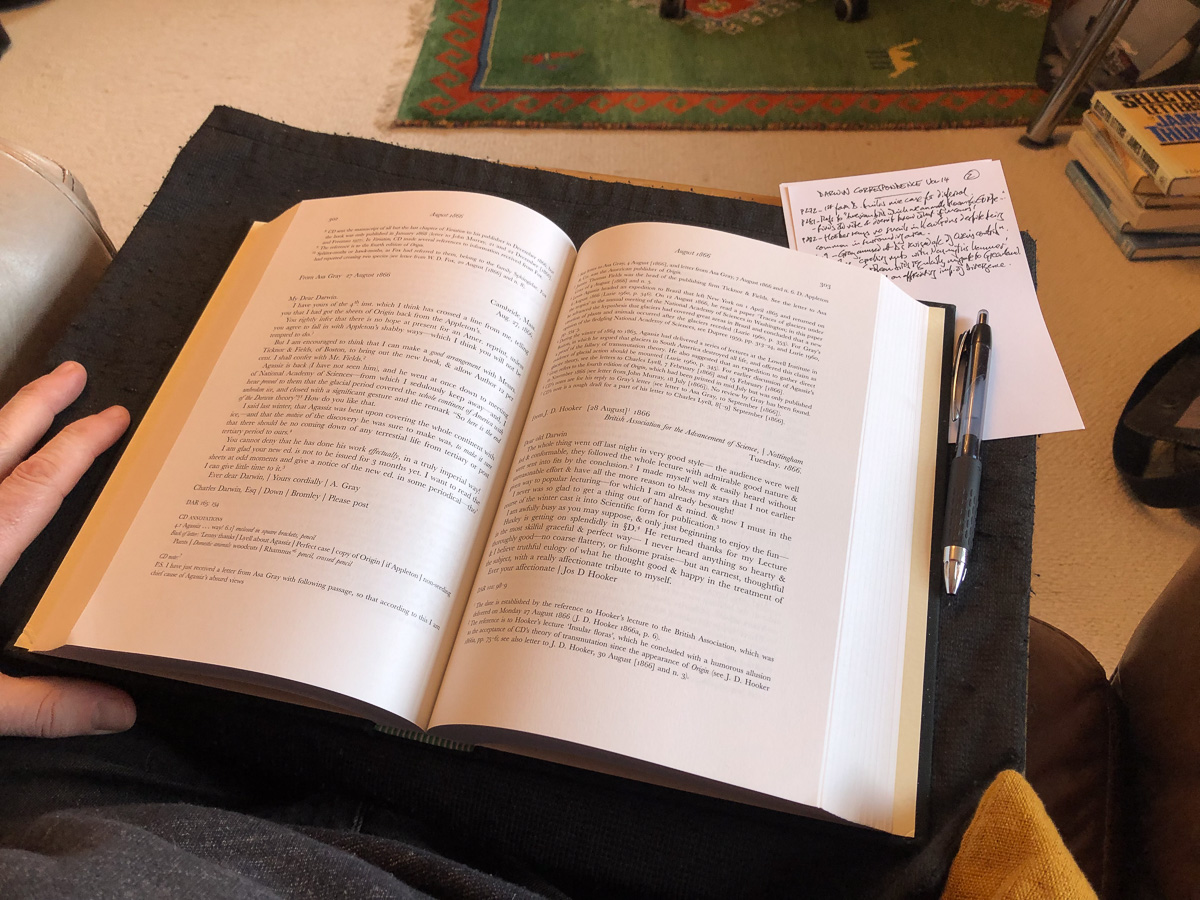I spend a lot of time making notes from my reading. I’ve even made notes from my reading of books about making notes from one’s reading. Have I lost you yet?
Many people who write or otherwise opine about making notes from your reading say you should underline or highlight favourite or key passages and make brief personal observations in the margins. They claim defacing books in this manner is a sign you’re engaging with the text. Here, for example, are Adler and van Doren in their classic How to Read a Book:
Marking a book is literally an expression of your differences or your agreements with the author. It is the highest respect you can pay him.
I’m all for fully engaging with books, and for paying respect to authors—even authors with non-male pronouns—but writing in books is definitely not for me. I admit this is in no small part down to my having been brought up to believe only a monster would do such a thing. But there’s more to it than that.
My preferred method for making notes while reading physical books is to use an index-card as a bookmark and to make notes on that. I later write up these notes in more detail in my electronic note-making system. Conversely, when I read an ebook on my Kindle, I often use the Kindle’s highlighting feature. I tend not to make free-text notes on my Kindle as doing so is a total pain in the arse. When I’ve finished reading an ebook, I import my highlights and occasional free-text notes into my note-making system.

The more time I’ve spent cross-linking and developing my electronic notes, the more it’s become apparent the notes I make from physical books are superior to those I make from ebooks. Writing on an index-card provides genuinely useful friction. Before I put pen to card, I need to decide whether it’s actually worth the effort—especially bearing in mind I’m eventually going to have to transcribe the hand-written note into my electronic system. In other words, the pain of having to write a note by hand then re-key it into my system provides an important element of quality control. Conversely, the ease of highlighting on my Kindle means I tend to highlight far too much, so my electronic system ends up being populated with extraneous notes.
None of which, I concede, is any sort of argument against making highlights and hand-written notes on the actual pages of physical books. But my different modes of highlighting and annotating, depending on whether I’m reading a physical book or an ebook, provide an interesting contrast when it comes to re-reading books.
Some people claim seeing your old notes and annotations when you return to a favourite book enhances the experience. I beg to differ. Whenever I re-read a book on my Kindle, I find myself constantly distracted by my previous highlights. Lovely chap though he undoubtedly was, I don’t want Former Me telling me which bits of the book are most noteworthy. It’s like watching a film with some bore whose seen it before who keeps blurting out, “Ooh! This next bit’s good! Watch this!” I’m not kidding: I almost abandoned a recent re-reading of what is a strong contender for my favourite book of all time because of all my previous Kindle highlights. They were totally ruining the experience. In the end, I had to resort to the rather drastic and laborious process of manually deleting my old highlights one-by-one. (I then stupidly opened the Kindle app on a different device, it re-synched, and all my carefully deleted highlights magically re-appeared, requiring me to delete them all again! They have returned several times since.)
Re-reading a physical book involves no such issues to spoil my pleasure. The book’s pages are unsullied by Former Me. I still have my earlier thoughts available on my index-card bookmark, which I always file inside the book, but they don’t distract me from my reading. They’re there if I want them, but they’re not getting in the way.
Surely one of the best reasons for re-reading a book is to try to see it through fresh eyes. How can you possibly hope to achieve this when Former You has covered its pages with what they thought was noteworthy? What were you: some kind of monster? Your thoughts about a book belong in your note-making system; not scrawled across its pages.
Leave a Reply